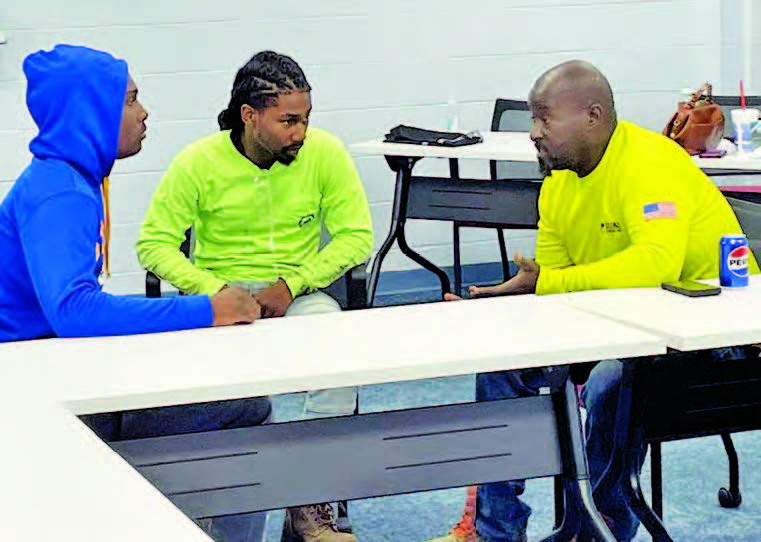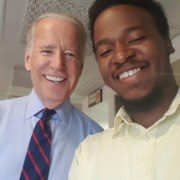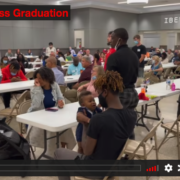Note: The following article originally appeared in the St. Louis American’s Annual “Diversity, Equity, and Inclusion” Edition. Click here to view the St. Louis American website and other content. Click here to view the full “Diversity, Equity, and Inclusion” Edition.
Sammy Morning was facing a math problem of the worst kind. Following his felony conviction and incarceration, he was struggling to find gainful and sustainable work. He had five children to support. He had two jobs. And the money wasn’t adding up.
Morning’s pastor suggested a program called Building Union Diversity (BUD), which served as a gateway to the building trades – and to a better life.
“They took a chance on me and allowed me to change my life,” said Morning, who today is six years into a rewarding career with Bommarito Construction as a member of Laborers International Union Local 110.
BUD is one of several innovative partnerships between labor and employers that are opening doors to life-changing employment for minorities, women, people who have experienced incarceration and other underrepresented populations.
Now in its 10th year and its 34th cohort, the BUD program is a six week union construction pre-apprenticeship program, offered at no charge to selected individuals who meet the admission requirements. The program, which is sponsored by the Missouri AFL-CIO’s Missouri Works Initiative, is offered statewide, though the BUD name is used only in the St. Louis area; in other parts of Missouri, it is known as the Apprentice Ready Program (ARP).
More than 250 BUD graduates have been placed in every building trades union in the St. Louis region.
Recognized as a comprehensive apprenticeship readiness program (ARP) by North America’s Building Trades Unions (NABTU), BUD offers enrollees a comprehensive introduction to construction employment by using NABTU’s nationally recognized Multi- Craft Core Curriculum (MC3) providing relevant national skills certification training, with a particular focus on job safety.
The three-part training model includes classroom coursework that covers both technical skills and life skills such as financial literacy; hands-on training; and trade placement advising to help participants find a place in one of more than 15 trades in the construction industry.
Participants also receive a weekly stipend and a bus pass, in addition to other support such as free work gear and a tool allotment. “The door this program has opened for me has helped me not only financially, but mentally as well,” said Kaylah Doss, a BUD graduate and member of the International Union of Elevator Constructors Local 3.
The BUD program coordinates with individualized training programs in the trade unions that are similarly designed to bring underrepresented populations into the trades. In this way, many BUD graduates receive additional specialized training in their chosen trade before starting work.
One example is the CHAMPIONS Initiative, a partnership between Plumbers & Pipefitters Local 562, the Mechanical Contractors Association (MCA) and the Plumbing Industry Council (PIC). The program offers six weeks of hands-on technical training and professional development specific to the pipe trades, concluding with placement as a pre-apprentice with an MCA or PIC member contractor. More than 40 CHAMPIONS graduates are currently employed as union plumbers or pipefitters.
In addition, CHAMPIONS – whose name is an acronym for Creating Hometown Advantages through Minority Participation in Our Neighborhoods – provides peer groups and intentional mentorship to walk alongside participants as they progress into apprenticeship and beyond.
“I am eager to begin this challenging yet rewarding journey,” said Jessica Percell, a BUD graduate and former bartender who is in this year’s CHAMPIONS cohort. “The thought of achieving my goals fills me with an overwhelming sense of satisfaction and fulfillment.”
Employers are joining the BUD movement as well. The Metropolitan Sewer District partnered with BUD to establish the Workforce Development Grant Program. Other employers participate in hosted hiring events and graduation ceremonies that expose BUD participants to more career opportunities and industry contacts.
“This program affords participants invaluable skills and resources and provides a solid foundation of support,” said Larry Woods, diversity construction supervisor with MSD, who regularly speaks to incoming BUD cohorts. Woods added that the diverse makeup of BUD participants – men, women, minorities, veterans, new Americans, formerly incarcerated people and more – is a game-changer for the economic landscape.
“By opening up opportunities to individuals who are often overlooked or underserved, the program is cultivating a new generation of construction industry workers,” Woods said. “This fresh intake of talent and innovation broadens the scope of inclusion within the industry”
“In doing so, those who may have previously encountered barriers to entry are being given a platform to succeed,” he added.
Morning, the BUD graduate turned laborer, concedes. “It can be better,” Morning said. “If you’ve got someone willing to provide you with the opportunity to be successful, you should take it! The BUD program did that for me.” For more information on BUD, visit moworksinitiative.org. For more information on the CHAMPIONS Initiative, visit mca-emo.org.










